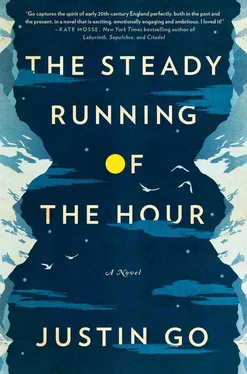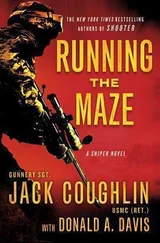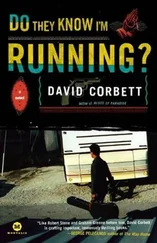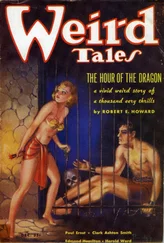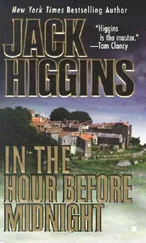— Don’t tell me it’s the one you lost.
She smiles, putting the key in his hand.
— You’re right, I shan’t tell.
— Is it the latchkey? What does it open?
— Ashley, I shan’t tell. You’ll have to find out, that’s the whole point. I promise it’s something terribly important. Have you eaten yet? I’m positively famished.
They check into the nearby hotel as Mr. and Mrs. Walsingham and as Ashley says these names, Imogen touches his hand and looks away. The clerk gives an inquiring smile.
— Newlyweds?
— Married yesterday, Ashley says. How did you know?
— You have that certain glow. I can tell it every time.
At lunch in the hotel restaurant their bodies vacillate between exhaustion and euphoria, Ashley constantly looking around the room for fear of being discovered in their ruse. This amuses Imogen.
— What does it matter what anyone thinks? In four days you’ll be in France. Anyhow that clerk thinks we’re married.
Ashley looks up from his soup.
— You looked unhappy when he said it.
— Unhappy isn’t the word, Imogen says. It’s just not how I want to think of us. Look at Ellie and Charles. It’s a wonder to me how two perfectly fascinating people can become so dull once they’ve married—
— They don’t seem dull to me.
— Because you didn’t know them before. You should have seen Ellie three years ago, when she was still at the Slade, forever coming home with new ideas. New books, new fellows brought over for tea, the cleverest fellows you ever met. We spoke of getting rooms together, Ellie and I, where we’d have people over every day of the week. If only she’d waited a few years, I might have gotten out of Cavendish Square. But now it’s hopeless, because Papa will never let me live on my own. And even if Ellie spends half her days with us, it’s not the same, because she’s not the same.
— What happened?
— Charles happened. Would you guess that when we met, I thought him the cleverest, the most fascinating of all the fellows? He’d just come down from Trinity and wouldn’t talk anything but pure genius rot. We’d pour the tea and he’d start at once on the perversity of beauty, the masochism of God, the meaning of earthly love. He once quarreled with Papa for an hour over universal suffrage. Charles said that Ellie and I had it wrong, that it wasn’t so much that women ought to have the vote, but that men oughtn’t to have it, because only men made war and valued profit over people—
— Isn’t he in the army?
— He is now. Of course he doesn’t fight, he just follows some major around and takes notes. And I haven’t the faintest idea what he believes anymore, because all Ellie and Charles talk about now is who was in the exhibition on Bond Street, or how much some fellow paid for his house in Clerkenwell. They don’t want to talk about the important things anymore.
— You could ask.
Imogen sighs. — I know I ought to, but it’s been so long that one can’t simply knock on Ellie’s door and ask, are you in really in love with Charles, or do you stay with him only because you have to? And are you really going to have children, because if you can’t or won’t, then stop moping about it, because anyone can see it’s making you miserable—
— You can’t blame all this on marriage.
— Can’t I? They were never like that before. It’s as if they’re playing roles instead of acting the way they feel, only after a while they aren’t roles anymore. Most people seem to regard a wife as half servant and half fool. I don’t say that Charles or Ellie subscribe to that, but what people expect can change you in the end. One oughtn’t give names to what two people are to one another. It only makes it harder to be one’s self.
— And what are we to one another?
Imogen smiles, shaking her head and looking into her bowl.
— Darling. You know there isn’t a word for it in any language.
— I might say there is.
Imogen looks up at Ashley. — Those are words other people give to other things. We’re here because of how we feel, not because we have to be here. Nor because there’s some name for this, strolling in Regent’s Park with a fellow, then running away to Wiltshire—
— Berkshire.
Imogen smiles. — Berkshire. My point is that it’s no good for two people to live together, never knowing whether they come home each night because they care for each other or because they’re bound to be there.
— One has to sleep somewhere.
Imogen kicks his foot under the table.
— Be serious.
— I am serious, Ashley says. One can’t do everything for the grandest reasons. I expect sometimes people do share a bed simply because they’re married. On other days they do it for all the right reasons. Besides, how could one share a life with someone if one never knew whether they’d be around the next moment?
Imogen sets her spoon down on the table and shrugs.
— We never know that anyway. Even if you and I were married, I might be struck dead by lightning. Or exploded by a bomb dropped from a zeppelin. Or you could come home one day and I’d be gone, in spite of all the promises I’d made to God and the law alike—
— You’d do that?
Imogen smiles. — Never. But neither would I marry.

After lunch they go up to their hotel room. They are alone now for the first time and they kiss wildly. Ashley remembers at once the taste of her mouth and her neck, how she felt in Regent’s Park and how she feels now, the scent of her skin against his, her breath warming his cheek. They kiss on until their mouths are tired. Even then they still look at each other in plain wonder, lying clothed in their stocking feet on the bed, Ashley holding her in his arms. He feels mad with fatigue, and in this haze Imogen seems more impossible than ever, more beautiful and more loving than he can fathom. They wake and sleep and wake and sleep until it all seems nearly the same. At times Imogen kisses him as soon as she wakes, before her eyes have opened, as if it is the first instinct in her being, coming before breath even.
Now it is time for Ashley to return home. They get out of bed and he pulls on his tunic, cinching his belt and reknotting his necktie before the mirror. Imogen pulls aside one of the curtains and looks out the window.
— I can’t stay here all day. I need fresh air. Could one hire a bicycle here? I could see the villages—
— There’s nothing to see.
— I adore looking at nothing. You promise to return tonight?
— Nine o’clock at the latest.
— If you’re a minute late, she teases, it’ll be an hour to me.
Ashley kisses her again at the door for a long time and has to pull himself away. He shuts the door behind him and follows the long hallway to the stairs, trying to straighten his shoulders and walk like a soldier. His steps fall softly on the carpet. Imogen Soames-Andersson , he thinks, who waits for me at nine o’clock . The name alone makes him feel crazy.
Back at home Ashley half-dozes through supper with his mother and a wizened aunt. In the parlor afterward the aunt plays Elgar on the piano as Ashley falls dead asleep in an armchair, his glass of Madeira in hand. The glass tips and the dark Madeira soaks his jacket sleeve. Ashley wakes to his mother’s shrieks. Drowsily he removes his jacket and pats it with a napkin. He excuses himself to bed.
In his bedroom Ashley changes into a suit of light flannel and steps out of the first-story window, on his shoulder an old climbing rucksack holding two bottles of champagne taken from the cellar. He feels ridiculous, but it only makes him smile. When he meets Imogen in the hotel lobby, he knows by her expression that she has some new secret to uncurtain.
Читать дальше
